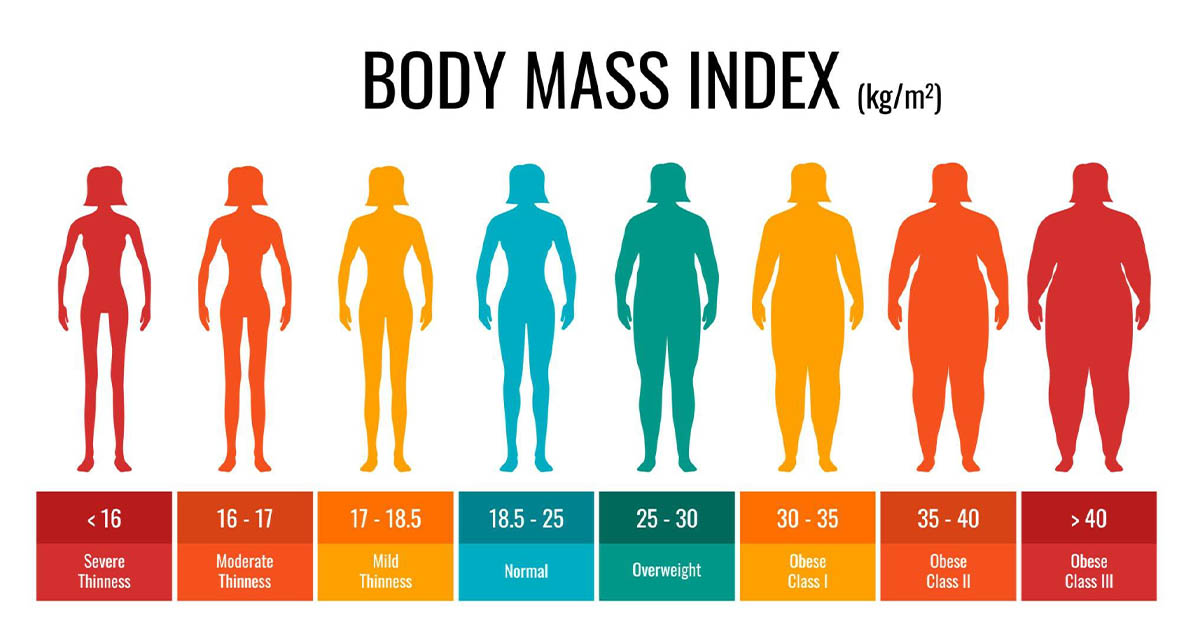BMI Calculator
What is my BMI?
| BMI | Nutritional Status |
|---|---|
| Below 18.5 | Underweight |
| 18.5 – 24.9 | Normal Weight |
| 25.0 – 29.9 | Pre-obesity |
| 30.0 – 34.9 | Obesity Class I |
| 35 – 39.9 | Obesity Class II |
| Above 40 | Obesity Class III |
Why BMI Calculator Is Essential for Your Health Journey:
How It Can Help You Achieve Your Fitness Goals
As we all know, maintaining a healthy weight is crucial for staying fit and healthy. However, with so many different diets and exercise routines out there, it can be hard to know where to start. One tool that can be incredibly helpful on your health journey is a BMI calculator.
BMI stands for Body Mass Index, and it’s a measure of your body fat based on your height and weight. By using a BMI calculator, you can determine whether you’re underweight, overweight, or at a healthy weight. This information is essential for setting realistic fitness goals and tracking your progress over time.
In this article, we’ll explore why a BMI calculator is so important for your health journey, and how it can help you achieve your fitness goals. Whether you’re just starting out on your fitness journey or you’re looking to take your workouts to the next level, a BMI calculator is an essential tool that can help you get there.
Understanding BMI and Its Importance

BMI, or Body Mass Index, is a measure of body fat based on a person’s height and weight. It is widely used by healthcare professionals to determine whether a person is underweight, overweight, or at a healthy weight. The formula used to calculate BMI is simple: weight (in kilograms) divided by height (in meters) squared.
While BMI is not a perfect measure of body fat, it is a useful tool for assessing overall health. Studies have shown that people with a higher BMI are at increased risk for a range of health problems, including heart disease, diabetes, and certain types of cancer. Additionally, being overweight or obese can have a negative impact on mental health, self-esteem, and quality of life.
For these reasons, it is important to know your BMI and take steps to maintain a healthy weight. Whether you’re trying to lose weight, gain muscle, or simply maintain your current weight, a BMI calculator can help you achieve your health goals.
How BMI Affects Your Health
BMI is an important indicator of overall health because it is closely linked to a range of health problems. For example, people with a BMI of 30 or higher are considered obese and are at increased risk for heart disease, stroke, and type 2 diabetes. Even a modest increase in BMI can have negative health consequences, such as an increased risk of high blood pressure and cholesterol levels.
In addition to physical health problems, being overweight or obese can have a negative impact on mental health. Studies have shown that people with higher BMI are more likely to experience depression, anxiety, and other mental health problems. This is likely due in part to societal stigma surrounding weight and body size, which can lead to feelings of shame, guilt, and low self-esteem.
By monitoring your BMI and taking steps to maintain a healthy weight, you can reduce your risk of these health problems and improve your overall quality of life.
Calculating Your BMI
Calculating your BMI is easy and can be done using a BMI calculator. There are many free BMI calculators available online, and they typically require only your height and weight to generate a BMI score.
To calculate your BMI manually, you can use the following formula:
BMI = weight (kg) / height (m)²
For example, if you weigh 68 kg and are 1.75 meters tall, your BMI would be:
BMI = 68 / (1.75)² BMI = 22.2
Once you have calculated your BMI, you can use it to determine whether you are underweight, overweight, or at a healthy weight.

Using a BMI Calculator for Weight Loss
If you’re trying to lose weight, a BMI calculator can be an incredibly helpful tool. By tracking your BMI over time, you can monitor your progress and adjust your weight loss goals as needed.
For example, if your BMI is currently in the overweight range, you may want to set a goal of losing enough weight to bring your BMI into the healthy range. By using a BMI calculator to track your progress, you can see how much weight you need to lose to reach your goal and adjust your diet and exercise routine accordingly.
It’s important to remember that losing weight too quickly can be harmful to your health. The recommended rate of weight loss is 1-2 pounds per week, which may not be reflected in your BMI score right away. However, by monitoring your BMI over time, you can ensure that you are losing weight at a healthy, sustainable rate.
BMI and Fitness Goals
In addition to weight loss, a BMI calculator can also be used to set and track fitness goals. For example, if your BMI is currently in the healthy range, you may want to focus on building muscle and improving your overall fitness level.
By using a BMI calculator to track your progress, you can see how changes in your weight and body composition are affecting your overall health. This can help you make more informed decisions about your diet and exercise routine, and can motivate you to stay on track with your fitness goals.
The Limitations of BMI
While BMI is a useful tool for assessing overall health, it is not a perfect measure of body fat. For example, it does not take into account differences in body composition, such as muscle mass versus fat mass. This means that a person with a high amount of muscle mass may have a high BMI score, even though they are not overweight or obese.
Additionally, BMI may not be an accurate measure of health for certain populations, such as athletes or older adults. In these cases, alternative measures of body composition, such as waist circumference or skinfold thickness, may be more appropriate.
Despite these limitations, BMI remains a useful tool for assessing overall health and tracking progress over time.
Alternative Measures of Body Composition
While BMI is a useful tool for assessing overall health, it is not the only measure of body composition. Depending on your goals, other measures may be more appropriate.
For example, if you’re trying to build muscle and improve your fitness level, you may want to track your body fat percentage or muscle mass. These measures can be obtained using a variety of methods, such as bioelectrical impedance analysis (BIA) or dual-energy x-ray absorptiometry (DEXA).
It’s important to remember that these alternative measures may not be as widely used or well-researched as BMI, and may not be covered by insurance. However, if you’re looking for a more personalized approach to tracking your progress, they may be worth considering.
How to Use BMI to Create a Healthy Lifestyle Plan

Once you know your BMI, you can use it to create a personalized plan for achieving your health goals. This plan may include changes to your diet and exercise routine, as well as other lifestyle changes that can improve your overall health.
For example, if you’re currently overweight or obese, you may want to focus on reducing your calorie intake and increasing your physical activity. By setting realistic goals and tracking your progress using a BMI calculator, you can stay motivated and on track with your weight loss goals.
If you’re already at a healthy weight, you may want to focus on maintaining your weight and improving your overall fitness level. This may involve increasing your daily activity levels, such as by taking walks or participating in a fitness class.
BMI and Medical Advice
It’s important to remember that BMI is just one tool for assessing overall health, and should not be used as a substitute for medical advice. If you’re concerned about your health or have specific health concerns, it’s important to speak with a healthcare professional.
In some cases, your healthcare provider may recommend additional tests or measures of body composition to assess your overall health. They may also be able to provide personalized advice on diet and exercise that can help you achieve your health goals.
Frequently Asked Questions About BMI
Why is BMI important?
BMI is important because it helps determine if a person is at a healthy weight, underweight, overweight, or obese. It is a useful tool for health professionals to assess the risk of certain health conditions related to weight, such as heart disease and diabetes.
How is BMI calculated?
BMI is calculated by dividing a person’s weight (in kilograms) by their height (in meters squared).
What are the categories for BMI?
BMI is categorized as follows:
- Underweight: BMI below 18.5
- Normal weight: BMI between 18.5 and 24.9
- Overweight: BMI between 25 and 29.9
- Obese: BMI of 30 or higher
How can I calculate my BMI?
You can use our BMI calculator, which can be found at the top of this page. Alternatively, you can calculate it yourself by dividing your weight in kilograms by your height in meters squared.
What should I do if my BMI is too high?
If your BMI is too high, it is important to speak with a health professional. They can help you create a plan to improve your diet, exercise habits, and overall health.
Conclusion
Maintaining a healthy weight is crucial for staying fit and healthy, and a BMI calculator can be an incredibly useful tool on your health journey. By tracking your BMI over time, you can set realistic goals, monitor your progress, and make informed decisions about your diet and exercise routine.
While BMI is not a perfect measure of body fat, it is widely used by healthcare professionals to assess overall health and can be a helpful tool for setting and achieving health goals. Whether you’re just starting out on your fitness journey or you’re looking to take your workouts to the next level, a BMI calculator is an essential tool that can help you get there.
